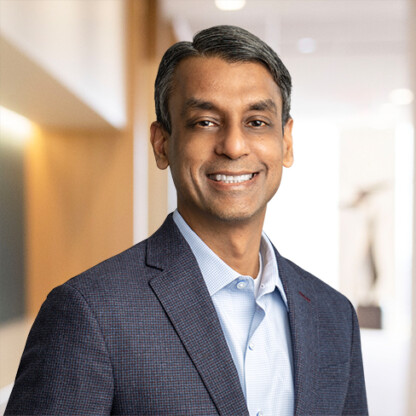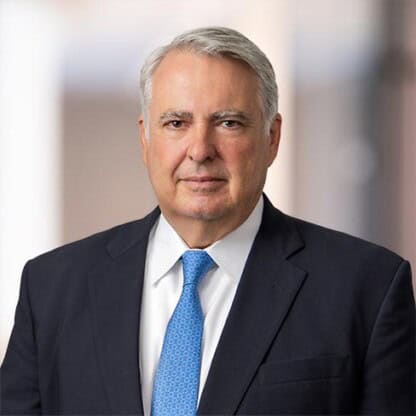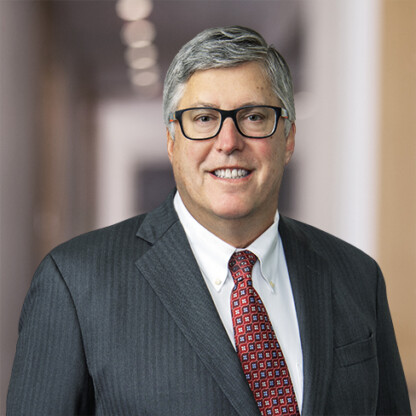Agarwal, Aiello, Hilfinger, Kantaros and Rumberger Quoted in Cellular News about Connected Cars Survey
24 October 2017
Partners Pavan Agarwal, Mark Aiello, Steve Hilfinger, David Kantaros and Todd Rumberger were quoted in a Cellular News article, “Foley Survey Reveals Bullish but Measured Outlook in Race to Self-Driving Cars,” about the findings of the firm’s Connected Cars & Autonomous Vehicles Survey.
“Connected car technologies are already prevalent today, with increasing ease of access, convenience and affordability. Thus, it’s not surprising that cybersecurity and privacy are top of mind with industry executives,” said Aiello. “With the deployment of autonomous vehicles further on the horizon, convincing consumers of the viability of self-driving cars and the potential to reduce accidents is a more near-term focus.”
Kantaros discussed how competition is now coming from all side and will be disruptive. “As various participants seek market share in this ripe area, we anticipate continued disruption in the automotive industry and new types of collaborations between automotive and technology companies to drive innovation,” he said.
Hilfinger added that legislation now moving through Congress should serve as an important springboard to further guide and spur development and innovation, while prioritizing safety and education. “Given the significant financial and safety stakes, the sophisticated nature of the technology and the likely pervasive impact on society, it is not efficient for 50 different states to dictate the development of the industry,”
Agarwal also discussed concerns about cybersecurity and intellectual property in autonomous and connected cars. “Connected car and autonomous vehicle technologies raise an array of intellectual property considerations,” he said. “Whether a company focuses more on developing hardware components or software solutions, they need to be hyper-attuned to leveraging their own IP to gain and protect market share, as well as to addressing risk from competitors’ IP.”
Rumberger noted that both Silicon Valley and Detroit will be major players in the market. The survey results affirm the important role of new technologies in the automotive industry. Incumbents are increasingly embracing these changes through startup investments and acquisitions, while new entrants are positioning themselves for successful integration into traditional supply chains through commercial partnerships with incumbents,” he said. “Whether Silicon Valley and Detroit are on a collision course or a collaborative and integrated path forward remains to be seen, but in the near-term, we expect each will continue to do what they do best – innovate and produce.”
“Connected car technologies are already prevalent today, with increasing ease of access, convenience and affordability. Thus, it’s not surprising that cybersecurity and privacy are top of mind with industry executives,” said Aiello. “With the deployment of autonomous vehicles further on the horizon, convincing consumers of the viability of self-driving cars and the potential to reduce accidents is a more near-term focus.”
Kantaros discussed how competition is now coming from all side and will be disruptive. “As various participants seek market share in this ripe area, we anticipate continued disruption in the automotive industry and new types of collaborations between automotive and technology companies to drive innovation,” he said.
Hilfinger added that legislation now moving through Congress should serve as an important springboard to further guide and spur development and innovation, while prioritizing safety and education. “Given the significant financial and safety stakes, the sophisticated nature of the technology and the likely pervasive impact on society, it is not efficient for 50 different states to dictate the development of the industry,”
Agarwal also discussed concerns about cybersecurity and intellectual property in autonomous and connected cars. “Connected car and autonomous vehicle technologies raise an array of intellectual property considerations,” he said. “Whether a company focuses more on developing hardware components or software solutions, they need to be hyper-attuned to leveraging their own IP to gain and protect market share, as well as to addressing risk from competitors’ IP.”
Rumberger noted that both Silicon Valley and Detroit will be major players in the market. The survey results affirm the important role of new technologies in the automotive industry. Incumbents are increasingly embracing these changes through startup investments and acquisitions, while new entrants are positioning themselves for successful integration into traditional supply chains through commercial partnerships with incumbents,” he said. “Whether Silicon Valley and Detroit are on a collision course or a collaborative and integrated path forward remains to be seen, but in the near-term, we expect each will continue to do what they do best – innovate and produce.”
People
Related News
25 July 2024
In the News
Donald Schroeder on Groff – ‘Supreme Court decision is inviting a more fact-based analysis’
Foley & Lardner LLP partner Donald Schroeder assessed the impact of the U.S. Supreme Court’s 2023 decision in a religious accommodation case as it returns to the district court in the Law360 article, “A Year After High Court Spotlight, Groff Case Still A Bellwether.”
24 July 2024
In the News
Louis Lehot Featured in Q&A on How Startups Can Prepare for IPO
Foley & Lardner LLP partner Louis Lehot features in the Q&A, "How startups can get in top shape for an IPO, according to Silicon Valley lawyer Louis Lehot," part of Business Insider's Road to IPO' series.
24 July 2024
In the News
Courtenay Brinckerhoff on Patent Cap in Drug Pricing – ‘Hard to predict if this will make a difference’
Foley & Lardner LLP partner Courtenay Brinckerhoff discussed a recent bill passed in the U.S. Senate aimed at lowering drug prices by limiting the number of patents that can be asserted in cases over biosimilars in the Law360 article, “Patent Cap In Drug Pricing Bill Seen As Having Muted Effect.”



